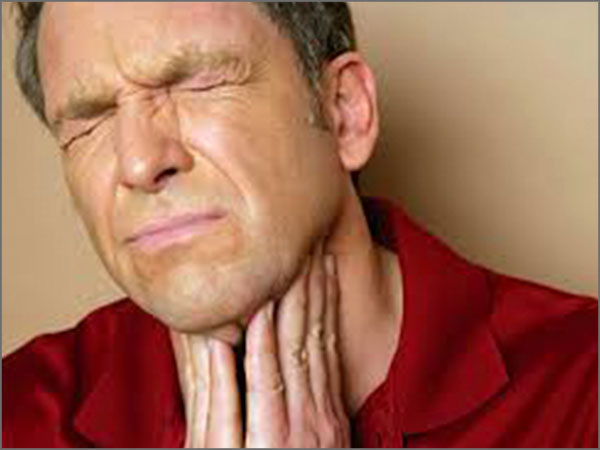
What is it?
It is a disorder that is associated with repeated episodes of severe pain in the tongue, throat, ear and tonsil. These are all areas supplied by glossopharyngeal nerve, a nerve arising from the lower part of brain. These episodes of pain may last form a few seconds to a few minutes and usually occur on one side of the face.
What are the symptoms?
- Repeated episodes of severe pain in the areas of head supplied by the glossopharyngeal nerve. These include the back of the nose and throat, back of the tongue, ear, tonsil and voice box.
- Some episodes may be associated with coughing or hoarseness.
- Episodes may last for a few seconds to a few minutes.
- May occur many times through out day and night.
- They occur typically in individuals more than 50 yrs. old and in women.
- This pain can cause difficulty in speaking and swallowing
- Some times these attacks may be associated with very low heart rate, fall in blood pressure, cardiac arrest and fainting.
Trigger factors
Swallowing, speaking, laughing, chewing or coughing
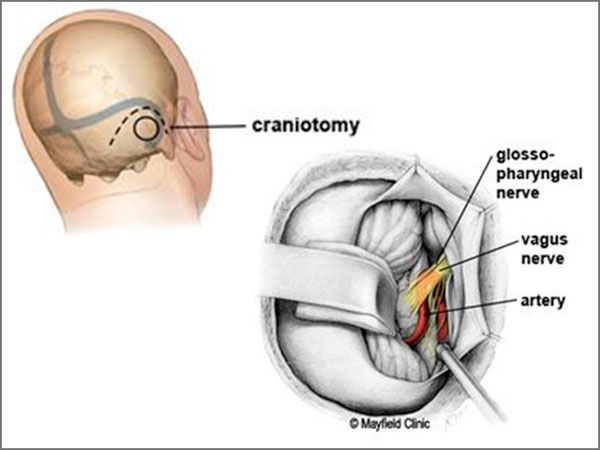
What are the causes?
- Glossopharyngeal neuralgia is thought to be caused by irritation of the glossopharyngeal nerve. In many cases the cause is not known. The irritation may be due to pressure on the nerve by an abnormally positioned artery.
- Growth at the base of the skull
- Injury to the nerve
- Tumors of the throat, mouth or brain
- Aneurysm of the carotid artery
- Abnormally long bone; styloid process
- Multiple sclerosis
Diagnosis:
- Complete history and a detailed clinical examination
- Imaging to rule out any tumor and to see for nay abnormal vessel
Treatment:
- Medical treatment: muscle relaxants, anti convulsants and anti depressants
- Physical therapy like electrical nerve stimulation
- Nutritional therapy with vitamin and mineral supplementation
- Micro vascular decompression: Surgery decompresses the nerve. Here a small piece of skull is removed and with gentle dissection the nerve and the offending blood vessel are separated and kept away from each other with a piece of Teflon in between them. It is called micro vascular decompression. Among all the modalities the results after surgery are excellent
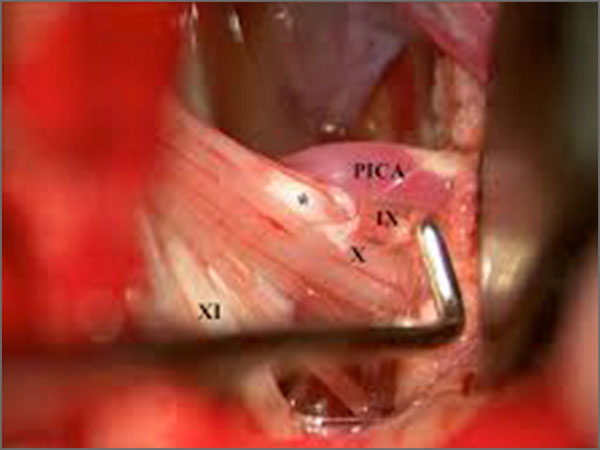 |
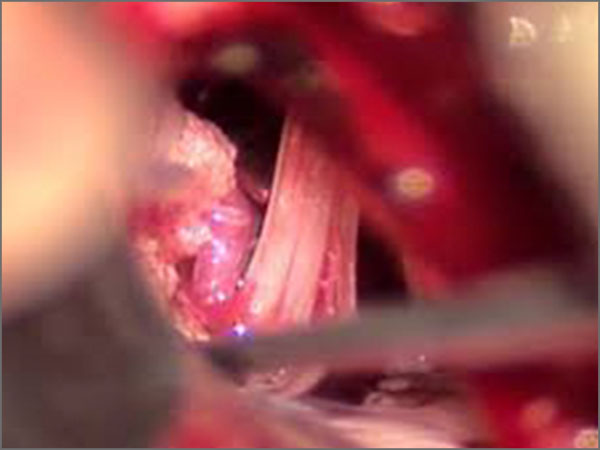 |
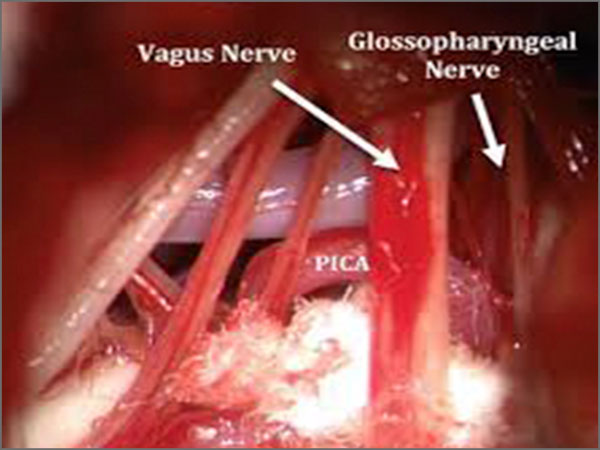 |


